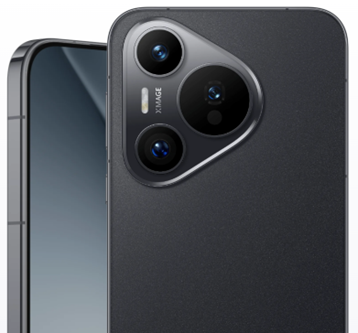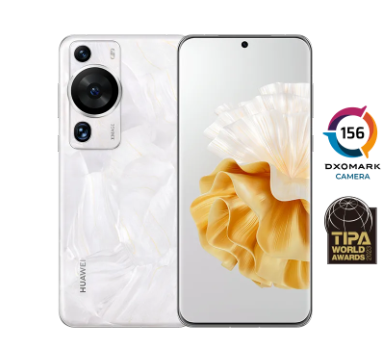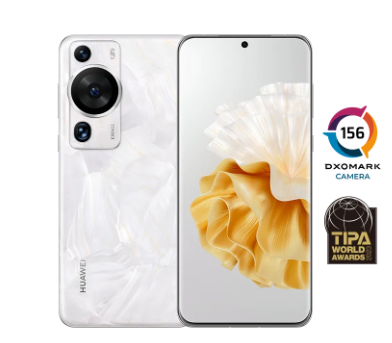In
the ever-evolving landscape of technology, staying abreast of the latest trends
is crucial. Within the realm of smartphones, several trends have been shaping
the industry, ranging from advancements in camera technology to the widespread
adoption of 5G networks and the integration of Artificial Intelligence (AI)
into smartphone features. Let's delve into each of these trends to understand
their significance and impact.

Current Trends in the Smartphone Industry
Advancements in Camera Technology: Redefining
Smartphone Photography
One
of the most noticeable and impactful trends in the smartphone industry is the
continuous evolution of camera technology. Over the years, smartphone cameras
have transformed from mere accessories to powerful tools capable of capturing
professional-quality images and videos. Advancements such as multiple lenses,
larger sensors, optical image stabilization, and computational photography
techniques have enabled smartphones to rival traditional cameras in terms of
image quality and versatility. Features like Night Mode, Portrait Mode, and
AI-driven scene recognition have become standard, allowing users to
effortlessly capture stunning shots in various lighting conditions and
scenarios. Just like the camera of huawei p70, it can make every frame stunning.
5G Adoption: Paving the Way for Next-Generation
Connectivity
The
rollout of 5G networks marks a significant milestone in the smartphone
industry, promising faster speeds, lower latency, and enhanced connectivity.
With 5G, users can experience seamless streaming of high-definition content,
lag-free gaming, and lightning-fast downloads on their smartphones. Beyond
consumer benefits, 5G is poised to revolutionize industries such as healthcare,
transportation, and manufacturing through innovations like remote surgery,
autonomous vehicles, and smart factories. As more countries and mobile carriers
deploy 5G infrastructure, smartphones equipped with 5G capabilities are
becoming increasingly prevalent, driving the demand for next-generation
connectivity.
The Impact of AI on Smartphone Features: Enhancing
User Experience
Artificial
Intelligence has permeated nearly every aspect of smartphone technology,
enriching user experiences and expanding capabilities. From voice assistants
like Siri and Google Assistant to predictive text suggestions and personalized
recommendations, AI-driven features have become indispensable tools for
smartphone users. In the realm of photography, AI algorithms are used to
optimize camera settings, enhance image quality, and even generate
realistic-looking portraits with simulated bokeh effects. Beyond photography,
AI-powered applications can assist users in tasks such as language translation,
speech recognition, and augmented reality experiences, making smartphones more
intuitive and versatile than ever before.
Balancing Innovation with Affordability: Meeting
Consumer Demands
While
advancements in camera technology, 5G adoption, and AI integration showcase the
cutting-edge capabilities of modern smartphones, manufacturers face the
challenge of balancing innovation with affordability. As flagship devices push
the boundaries of technology with premium features and price tags to match,
there is a growing demand for mid-range and budget-friendly smartphones that
offer a compelling value proposition. Manufacturers are responding to this
demand by incorporating key features such as high-quality cameras, 5G
connectivity, and AI-driven functionalities into more affordable models,
democratizing access to advanced smartphone experiences.

Looking Ahead: Anticipating Future Developments
As
we look to the future, the trajectory of smartphone technology is poised to
continue its rapid evolution. Innovations such as under-display cameras,
foldable displays, and advancements in battery technology hold the promise of
further transforming the capabilities and form factors of smartphones.
Additionally, emerging trends such as sustainable manufacturing practices,
privacy-focused features, and advancements in biometric authentication are
expected to shape the next phase of smartphone development, catering to the
evolving needs and preferences of consumers worldwide.
Conclusion
In
conclusion, staying updated with the latest trends in the smartphone industry
is essential for consumers, manufacturers, and industry stakeholders alike.
From advancements in camera technology and the widespread adoption of 5G
networks to the integration of AI-driven features, these trends are reshaping
the way we interact with and perceive smartphones. By understanding and
embracing these trends, we can navigate the ever-changing landscape of
smartphone technology and harness its full potential to enrich our lives.



